Antioxidants and Aging
Consume foods rich in anti-oxidants to help combat free radicals — unpredictable oxygen elements that lead to the process of aging. Also anti-oxidants are located in colorful veggies and fresh fruits like berries, beets, and tomatoes. To get well balanced diet and to help you reduce your danger of developing cancer and cardiovascular disease, include at least 5 to 9 parts of fruits and veggies to your diet every day.
Benefits of Olive Oil
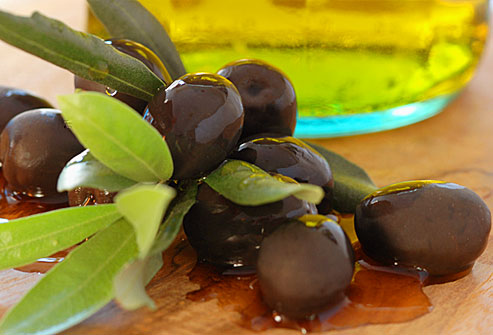
Olive oil is a tasty monounsaturated fat that may positively affect memory. A compound in extra-virgin olive oil called oleocanthol is a natural anti-inflammatory and produces effects similar to ibuprofen and other NSAIDs. One study of men showed that olive oil, especially extra-virgin, increased HDL, the good cholesterol that clears fat from blood vessel walls — a condition known as atherosclerosis.
The Health Benefits of Berries

Berries are a great source of antioxidants. Strawberries, blueberries, and acai berries are just some examples of polyphenol-rich berries. These powerful compounds may help combat cancers and degenerative diseases of the brain. Frozen berries contain polyphenols, too. Check out the grocery store’s freezer case and include berries in your diet year-round.
Why Fish Is Brain Food

Top your salad with tuna or salmon instead of chicken. Fish has been called “brain food” because its fatty acids, DHA and EPA, are important to brain and nervous system development. Eating fish one to two times a week may also lower the risk of dementia. Omega-3 fats found in fatty fish can lower cholesterol and triglycerides. It can also help ease the inflammation that leads to atherosclerosis.
Consume Beans for Fiber
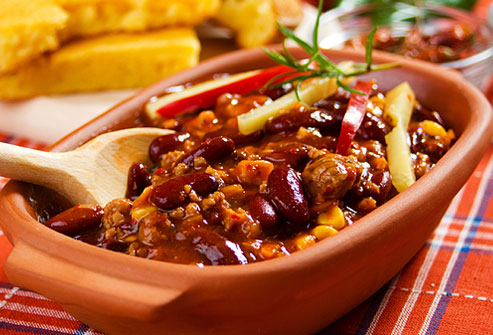
Add fiber-rich beans to your diet three to four times a week. Fiber may help lower blood pressure, improve cholesterol, prevent constipation, and help digestion. And because you feel full longer, eating a diet high in fiber can help you manage your weight. Top a salad with chickpeas or use beans in place of meat in soups. Beans contain complex carbohydrates to help regulate glucose levels, which is important for people with diabetes.
The Value of Eating Vegetables

Veggies contain fiber, phytonutrients, and loads of vitamins and minerals that may protect you from diseases. Dark, leafy greens contain vitamin K for strong bones. Sweet potatoes and carrots contain vitamin A, which helps keep eyes and skin healthy and protects against infection. Studies suggest having a serving of tomatoes or tomato products every day may prevent prostate cancer.
Eat Like the Greeks
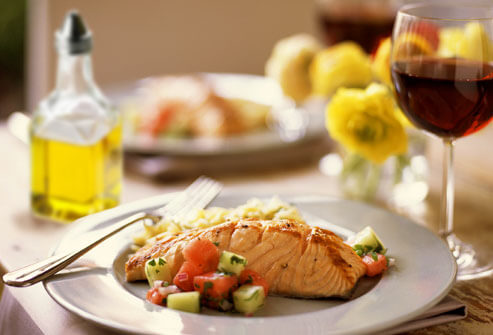
People living near the Mediterranean regularly incorporate olive oil, fish, vegetables, whole grains, and an occasional glass of red wine into their meals. Instead of salt, they rely on spices and herbs to flavor their foods. This “Mediterranean diet” can be beneficial to heart health, can reduce the risks of mild memory impairment, and may ward off certain cancers.
Nutrition in Nuts

Whether eaten whole or ground into paste, nuts are packed with cholesterol-free protein and other nutrients. Almonds are rich in vitamin E, an antioxidant that protects the body from cell damage and helps boosts the immune system. Pecans contain antioxidants. The unsaturated fats in walnuts can reduce LDL and raise HDL cholesterol. But nuts aren’t fat-free. One ounce of almonds — about 24 nuts — contains 160 calories. So eat nuts in moderation.
What’s Good About Dairy

Vitamin D, found in fortified beverages like milk, helps increase calcium absorption. That’s especially important for bone health. Higher intake or blood levels of vitamin D, may also help reduce the risk of colon, breast, and prostate cancers. Eat yogurt with live cultures to aid digestion.
Whole-Grain Healthy
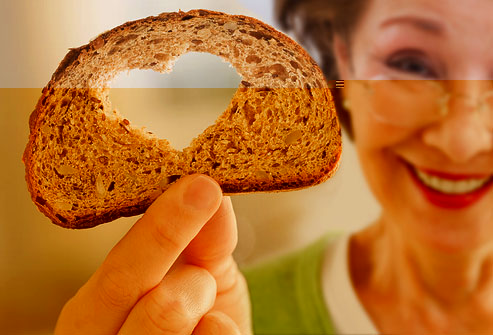
Eating whole grains can reduce your risk of certain cancers, type 2 diabetes, and heart disease. Choose whole-grain breads and pastas and brown or wild rice instead of white. Drop barley into soups or add plain oatmeal to meatloaf. Whole grains are minimally processed, so they retain more nutritional value. The fiber in whole grains helps prevent digestive problems such as constipation and diverticular disease.
Lose Weight for Better Health
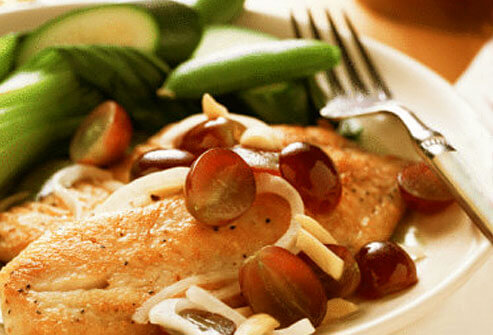
Keeping off extra weight puts less pressure on your joints, less strain on your heart, and can reduce your risk of certain cancers. It gets tougher to do as metabolism slows and as you lose muscle with age. Select proteins like lean meats, tuna, or beans. Include vegetables, whole grains, and fruits. It takes more energy for your body to break down complex carbs, and the added fiber will help you feel fuller.
Maintain a Healthy Weight

Sometimes as people age, it’s difficult for them to keep weight on. You may have a harder time recovering from illness or injury if you’re underweight. Eat three meals a day, with healthy snacks in between. Try whole milk instead of skim but limit your overall saturated fat to avoid high cholesterol. Eat the most calorie-heavy item in your meal first. If needed, add a meal supplement until you reach your desired weight.
 Freshsein
Freshsein